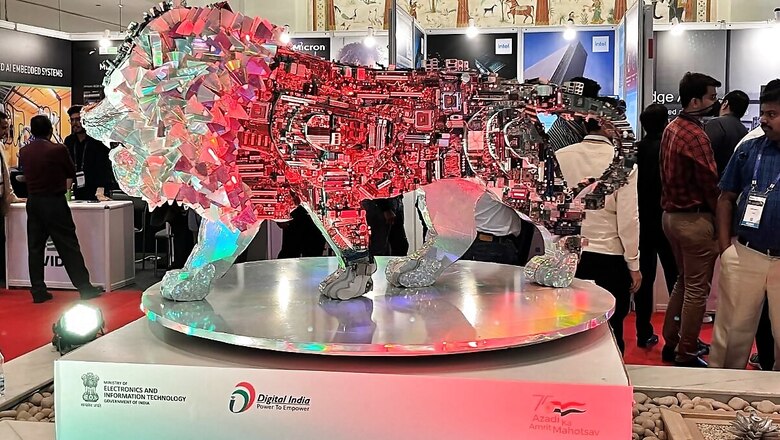
views
The newest India-US tech alliance during Prime Minister Narendra Modi’s visit and semiconductor announcements are believed to have the potential to reduce China and Taiwan’s dominance in the chip market.
Both India and the US have substantial strengths in the semiconductor business. Many of the world’s largest chip makers are based in the US, whereas India has a massive and growing pool of talented engineers. So, all the details released on June 22 about the partnership between the two countries indicate that by collaborating, they may build a more robust and diverse semiconductor supply chain.
Even though it is still too early to say how successful the India-US tech partnership will be in reducing China and Taiwan’s dominance in the chip sector, the recent announcements suggest that the two countries are serious about working together to achieve this goal.
The impact
The establishment of Micron’s semiconductor chip testing and manufacturing plant in India represents a significant step towards reducing the dominance of Chinese and Taiwanese companies in the global semiconductor market, Sanjay Gupta, chairperson of India Electronics and Semiconductor Association (IESA), told News18.
“While China and Taiwan have traditionally been key players in the semiconductor industry, India’s collaboration with Micron signifies a shift in priorities for global companies. India’s growing presence in the semiconductor sector will help diversify the global supply chain,” Gupta said.
He added: “With Micron’s investment, India strengthens its position as a competitive manufacturing hub, offering an alternative.”
According to him, by attracting global semiconductor giants like Micron, India can leverage its expertise and technologies to enhance domestic capabilities. “This reduces reliance on Chinese and Taiwanese companies for semiconductor imports, thereby diminishing their dominance. The collaboration also fosters technological innovation as well as research and development activity in the country. It will drive the growth of local talent, encourage entrepreneurship and cultivate a conducive ecosystem for indigenous semiconductor startups to thrive,” Gupta said.
He also pointed out that the semiconductor industry was highly competitive and dynamic, saying: “Chinese and Taiwanese companies have a well-established infrastructure, extensive experience and significant investment in research and development. Their dominance cannot be easily disrupted, and they continue to play a crucial role in the global semiconductor market.”
India-US tech collaboration was not only a significant announcement from the industry perspective but also strategic, said Sailesh Lachu Hiranandani, chairman of SRAM & MRAM Group that announced a Rs 2-lakh crore investment in Odisha last year to set up a semiconductor unit.
“The joint announcement made by America and India signifies a milestone in the bilateral relationship and far-reaching implications for both countries, a strategic move to counterbalance China’s growing dominance and influence in the Indo-Pacific region,” Hiranandani said.
He further said the collaboration represented an opportunity for India to strengthen its position on the global stage and enhance strategic partnership. He also indicated that the partnership will pave the way for technological advancements, defence cooperation and economic growth leading to increased investment, trade and technology transfer from the US to India, which can help bolster India’s economic development and drive innovation.
“Importantly, it will also give access to advanced defence technologies, thereby enhancing our defence capabilities and national security,” Hiranandani said.
The minister of state for electronics and IT, Rajeev Chandrasekhar while talking about the investment announcements including Micron Technology, Applied Materials and Lam Research, said these were “very significant and tectonic in the way they accelerate India’s semiconductor ecosystem growth”.
“It also accelerates India’s growth as an electronics trusted player in the electronics and semiconductor supply chain… We have confidence that in coming years the talent from our education ecosystem, the youth who will be coming as VLSI engineers are going to make India a leader in electronics and semiconductors in addition to continuing the growth and global presence in innovation, IT & ITeS segments of the digital economy,” Chandrasekhar said.




















Comments
0 comment